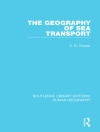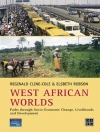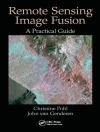Environment and Society: A Critical Introduction is an
overview of the diverse conceptual tools and traditions for
thinking about, explaining and addressing the environmental
challenges we face in the contemporary world.
* Provides an introduction to the environmental challenges we
face in the contemporary world through foundational theoretical
ideas illustrated with concrete, everyday examples
* Utilizes compelling, conversational language to expound on
theory, history, and scientific topics, making the text accessible
to a diverse readership
* Draws upon contemporary theoretical understandings in
nature/society theory while demonstrating through practice and
deployment
* Includes discussion of key historical events, topical issues,
and policies, as well as scientific concepts
Table of Content
List of Figures.
List of Tables.
List of Text Boxes.
Acknowledgments.
1 Introduction: The View from Clifton Bridge.
What Is This Book?
Part I Approaches and Perspectives.
2 Population and Scarcity.
A Crowded Desert City.
The Problem of ‘Geometric’ Growth.
Population, Development, and Environment Impact.
The Other Side of the Coin: Population and Innovation.
Limits to Population: An Effect Rather than a Cause?
Thinking with Population.
3 Markets and Commodities.
The Bet.
Managing Environmental Bads: The Coase Theorem.
Market Failure.
Market-Based Solutions to Environmental Problems.
Beyond Market Failure: Gaps between Nature and Economy.
Thinking with Markets.
4 Institutions and ‘The Commons’.
Controlling Carbon?
The Prisoner’s Dilemma.
The Tragedy of the Commons.
The Evidence and Logic of Collective Action.
Crafting Sustainable Environmental Institutions.
Are All Commoners Equal? Does Scale Matter?
Thinking with Institutions.
5 Environmental Ethics.
The Price of Cheap Meat.
Improving Nature: From Biblical Tradition to John Locke.
Gifford Pinchot vs. John Muir in Yosemite, California.
Aldo Leopold and ‘The Land Ethic’.
Liberation for Animals!
Holism, Scientism, and Pragmatism? Oh My!
Thinking with Ethics.
6 Risks and Hazards.
The Great Flood of 1993.
Environments as Hazard.
The Problem of Risk Perception.
Risk as Culture.
Beyond Risk: The Political Economy of Hazards.
Thinking with Hazards and Risk.
7 Political Economy.
The Strange Logic of ‘Under-pollution’.
Labor, Accumulation, and Crisis.
Production of Nature.
Global Capitalism and the Ecology of Uneven Development.
Social Reproduction and Nature.
Environments and Economism.
Thinking with Political Economy.
8 Social Construction of Nature.
Welcome to the Jungle.
So You Say It’s ‘Natural’?
Environmental Discourse.
The Limits of Constructivism: Science, Relativism, and the Very Material World.
Thinking with Construction.
Part II Objects of Concern.
9 Carbon Dioxide.
Stuck in Pittsburgh Traffic.
A Short History of CO2.
Institutions: Climate Free-Riders and Carbon Cooperation.
Markets: Trading More Gases, Buying Less Carbon.
Political Economy: Who Killed the Atmosphere?
The Carbon Puzzle.
10 Trees.
Chained to a Tree in Berkeley California.
A Short History of Trees.
Population and Markets: The Forest Transition Theory.
Political Economy: Accumulation and Deforestation.
Ethics, Justice, and Equity: Should Trees Have Standing?
The Tree Puzzle.
11 Wolves.
January 12, 1995, Yellowstone National Park.
A Short History of Wolves.
Ethics: Rewilding the Northeast.
Institutions: Stakeholder Management.
Social Construction: Of Wolves and Men Masculinity.
The Wolf Puzzle.
12 Tuna.
Blood Tuna.
A Short History of Tuna.
Markets and Commodities: Eco-Labels to the Rescue?.
Political Economy: Re-regulating Fishery Economies.
Ethics and Ecocentrism: The Social Construction of Charismatic Species.
The Tuna Puzzle.
13 Bottled Water.
A Tale of Two Bottles.
A Short History of Bottled Water.
Population: Bottling for Scarcity?
Risk: Health and Safety in a Bottle?
Political Economy: Manufacturing Demand on an Enclosed Commons.
The Bottled Water Puzzle.
14 French Fries.
MMM-MMM Good.
A Short History of the Fry.
Risk Analysis: Eating What We Choose and Choosing What We Eat.
Political Economy: Eat Fries or Else!
Ethics: Protecting or Engineering Potato Heritage?
The French Fry Puzzle.
Glossary.
References.
Index.
About the author
Paul Robbins is a Professor in the School of Geography and
Development at the University of Arizona, Tucson. His current
research centers on the relationships between individuals,
environmental actors, and the institutions that connect them.
Robbins is also the author of Political Ecology: A Critical
Introduction (2004) and Lawn People: How Grasses Weeds and
Chemicals Make us Who We Are (2007).
John Hintz is Assistant Professor of Geography and
Geosciences at the Bloomsburg University of Pennsylvania. His
current research focuses on land use conflicts, environmental
policy, and the US environmental movement. He has most recently
published in the journals Capitalism Nature Socialism and
Ethics, Place and Environment.
Sarah A. Moore is Assistant Professor in the School of
Geography and Development at the University of Arizona, Tucson. Her
research focuses on urban development politics, urban environmental
issues, and environmental justice in the United States and Latin
America. Her publications include articles in the Professional
Geographer and Society and Natural Resources.












